Highlights of the 3rd Conference on Dialogue Between Chinese and African Civilizations (2)
The 3rd Conference on Dialogue Between Chinese and African Civilizations, held on on April 9, 2024 by China-Africa Institute (CAI) consists of two panel sessions.
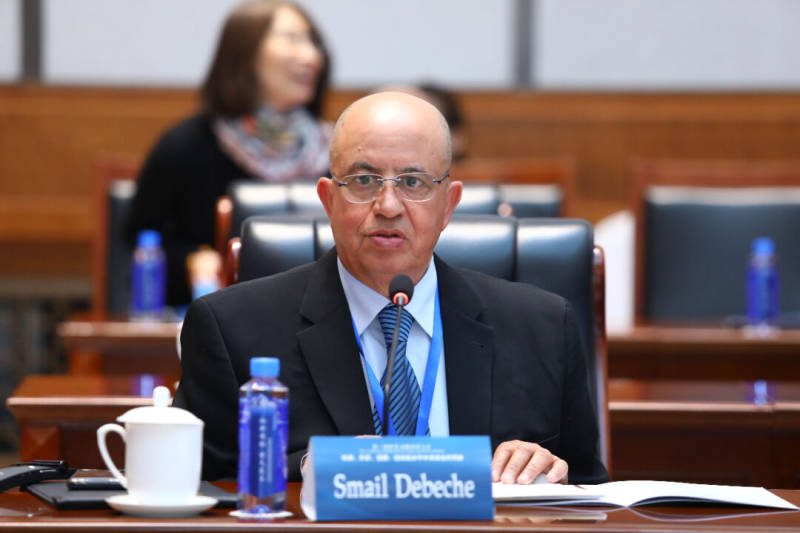
Smail Debech is presiding over Panel 1 discussion
Panel Session one “Deepening Mutual Understanding Between Chinese and African Civilizations Based on Fine Traditional Culture” was moderated by Smail Debeche, President of Algeria-China Friendship Association, and addressed by 6 speakers.
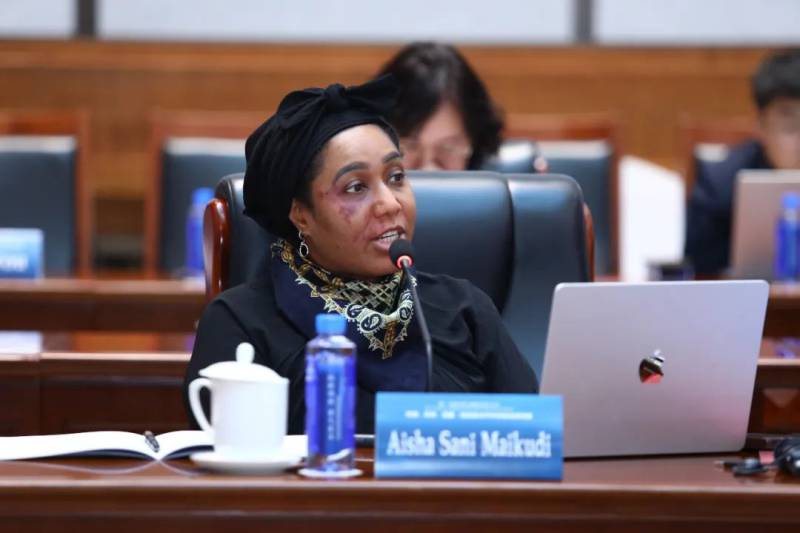
Aisha Sani Maikudi is delivering speech
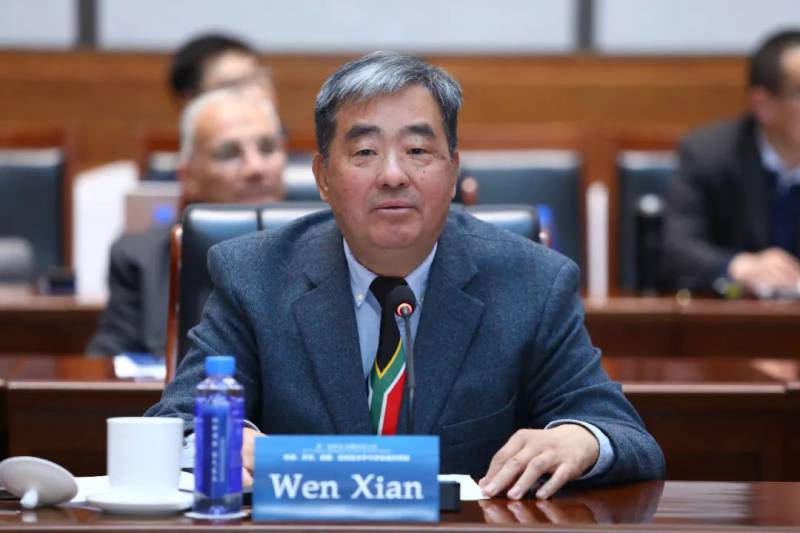
Wen Xian is delivering speech
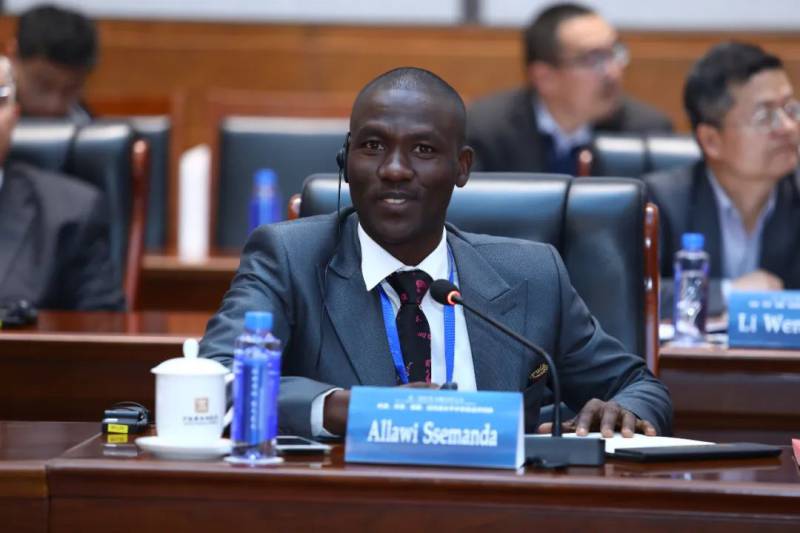
Allawi Ssemanda is delivering speech
Prof. Aisha Sani Maikudi, Deputy Vice Chancellor Academics of the University of Abuja, Nigeria noted that with time-honoured history and splendid civilization, China and Africa share similar pursuit in the development of social order, spiritual beliefs and harmony with nature. The two sides should work to explore digital technologies and online platforms for promoting cultural awareness and appreciation. By celebrating their shared heritage, embracing cultural diplomacy, and engaging in meaningful exchanges, Africa and China can build a bridge toward a harmonious future where fine traditional culture serves as a beacon of wisdom and unity.
Wen Xian, Special Researcher of CAI and Senior Journalist of People’s Daily said, the concept of global peace and development conforms to the trend of the times, but also faces with challenges. Both China and Africa have a strong pursuit of world peace in their civilization and traditional culture. They have always appreciated, learned and benefited from each other, and mutual benefit is an important connotation of China-Africa friendship and cooperation. In the future, China and Africa will continue to promote win-win cooperation on the basis of traditional culture and civilization.
PhD. Allawi Ssemanda, Executive Director of the Development Watch Centre Uganda delivered a speech “China-Africa Cooperation: The Path to Creating an Ideal World and Shared Future for Mankind”. He noted that the Global Development Initiative (GDI), the Global Security Initiative (GSI) and the Global Civilization Initiative(GCI) are all evidence of China's commitment to working with its partners, including African countries, to address global challenges. China has set a good example for African countries in poverty alleviation, and African countries could find their own development path by learning from China's experience.
He said, the long-arm jurisdiction imposed by western countries went completely against the idea of freedom and democracy. There must be more than one single model of freedom and democracy, and more than one economic development model in the world. China and African countries should explore their development paths in accordance with their own conditions, and seek for the model of freedom and democracy that really suits themselves. Africa should learn from China’s concept of independent development and the development model adapted to its own conditions.
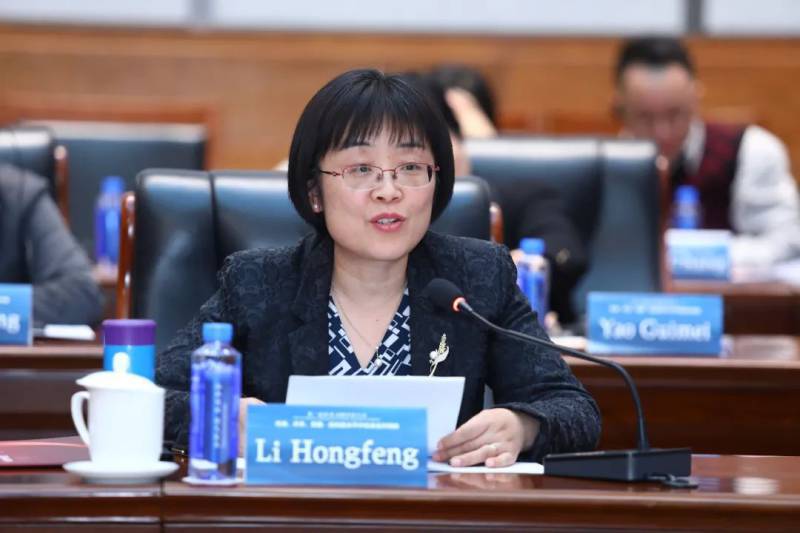
Li Hongfeng is delivering speech
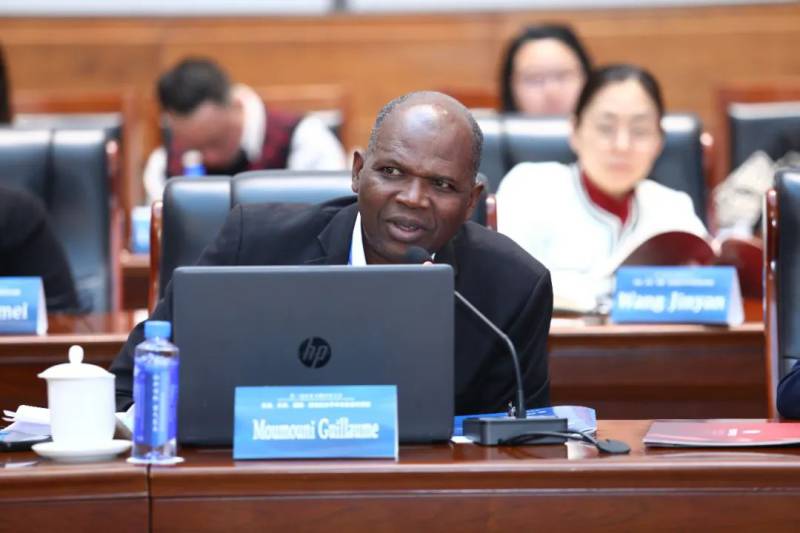
Guillaume Moumouni is delivering speech
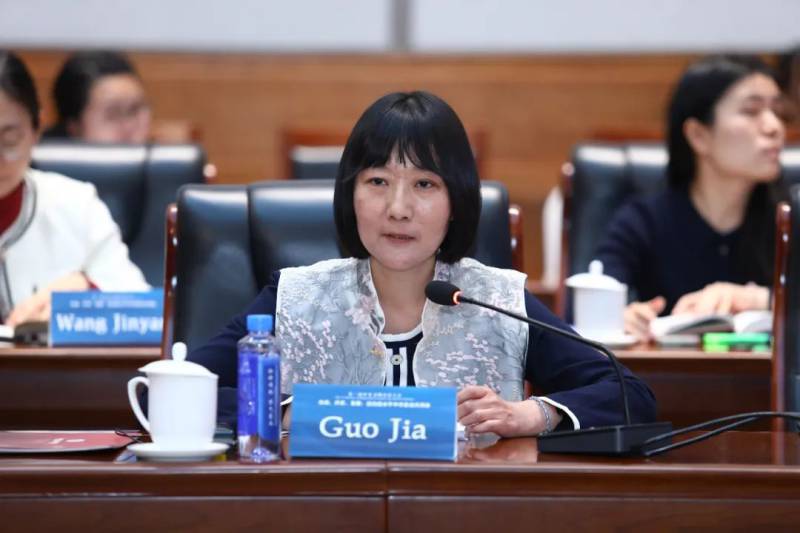
Guo Jia is delivering speech
Li Hongfeng, Dean and Professor of the School of African Studies, Beijing Foreign Studies University believes that the GCI has helped to promoted the mutual learning between Chinese and African civilizations. China attaches great importance to the study of African history and culture, while Africa has gained greater say by making connections with Chinese civilization. They have demonstrated its own connotation of civilization in global cultural system, and promoted the common values of all mankind.
Guillaume Moumouni, Assistant Professor and head of the Department of Cooperation, Public Relations and Protocol, Faculty of Law and Political Science, the University of Abomey-Calavi in Benin, made a speech “The BRI and the Contribution of Higher Education to Poverty Alleviation in Benin”, focusing on the linkage between higher education and poverty reduction. He conducted a research on the poverty alleviation and development in Guizhou Province, Southwest of China, and pointed out that the major force for technology advancement and economic growth lies on improved knowledge and skilled labour force brought by higher education. Benin would like to learn from China's experience in poverty alleviation, and to explore the integration of industry, education, and research in order to enhance collaboration among the government, universities and organizations, while promoting the sustained development of economy and society.
Guo Jia, Deputy Director and Assistant Research Fellow at the Division of Ethnicity and Religion Studies of CAI said, both Chinese and African civilizations uphold the idea of harmony, inclusiveness, solidarity and mutualism in the relationship between people and between man and nature. This is essentially opposed to the zero-sum game and the so-called Clash of Civilizations theory proposed by Western countries. “Based on fine traditional culture, deepening the mutual learning between Chinese and African civilizations” is an important topic in the development of China-Africa relations, the focus of which is to promote people-to-people exchanges and deepen friendship through mutual learning.

Yuan Zhengqing is making comments

Gohi Bi Foua Claude Alain is making comments
Yuan Zhengqing, Research Fellow of Institute of World Economics and Politics, CASS made comments. He said, the principle of equality, inclusiveness and mutual learning stated in the GCI put forward by President Xi Jinping differs from the concept of external expansion adopted by Europe and the United States of America. China and Africa are creating new forms of civilizations in exploring their paths to modernization. Cultural exchanges will transcend estrangement, mutual learning will transcend clashes, and coexistence will transcend feelings of superiority so that human civilizations can make progress. We need to help ourselves by helping others; we need to uphold the beauty of each civilization and the diversity of civilizations in the world; and we need to advocate the principles of mutual benefit and inclusiveness.
Gohi Bi Foua Claude Alain, Associate Professor of Panzhihua University commented that African countries now fully understand the important role of China in the international community, and the discussion at today’s conference brought profound insights into how Africa can grab the current opportunities for development, and promote closer China-Africa cooperation in the future.
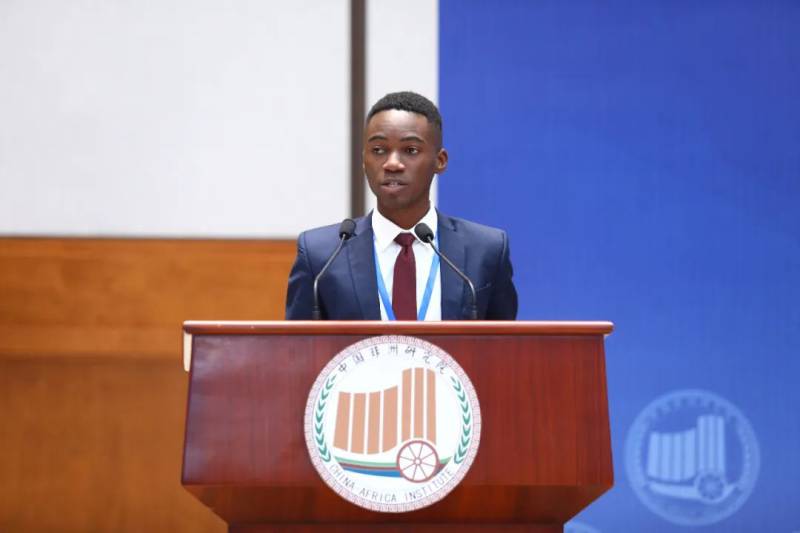
Kizito Nnanda is presiding over Panel 2 discussion
Panel Session two “Joining Hands to Promote BRI Cooperation by Sharing Development Experience Between China and Africa” was moderated by Kizito Nnanda, Senior Research Fellow of Development Watch Centre, Uganda, and addressed by 6 speakers.
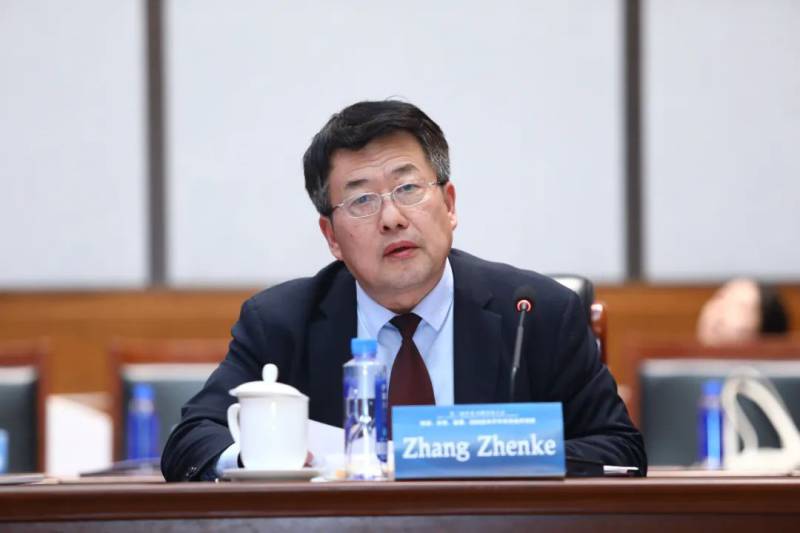
Zhang Zhenke is delivering speech
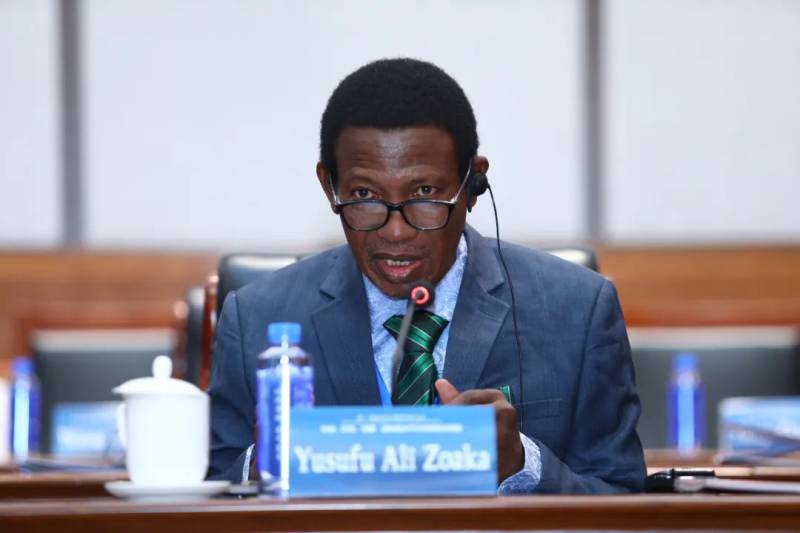
Yusufu Ali Zoaka is delivering speech
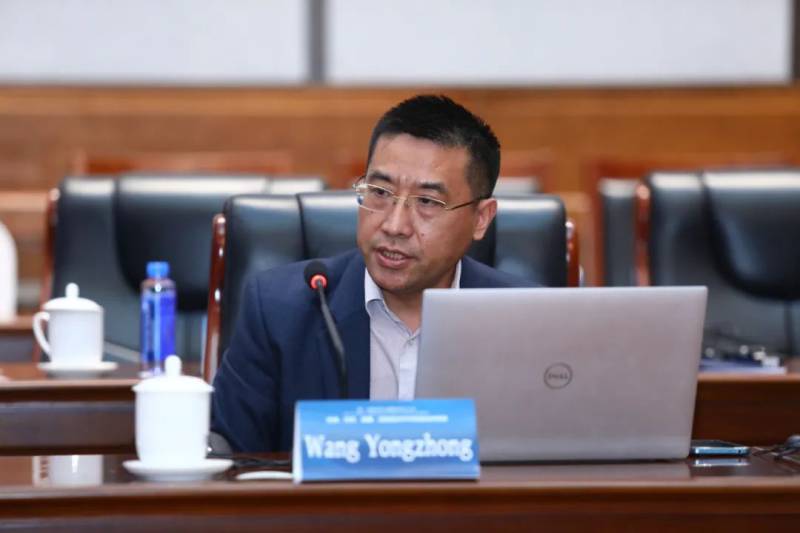
Wang Yongzhong is delivering speech
Zhang Zhenke, Director and Professor of the Center of African Studies, Nanjing University said, the concept of mutual learning among civilizations can help China and Africa work together to address issues in development. The BRI has been supported by many African countries since it was proposed. While sharing ideas and experience in development, China and Africa should explores paths for Africa's independent development. We welcome more and more African friends to exchanges ideas with China.
Yusufu Ali Zoaka, Professor of Policy Analysis and Development Studies at the University of Abuja in Nigeria believed that the keywords for China-Africa cooperation is “sharing” and “joining hands”. The two sides enjoy profound history and greater collaboration in economic trade and people-to-people exchanges. Nigeria has actively participated in the building of BRI which in turn helped Nigeria achieve practical development and greatly benefited the Nigerian people. He believes that China's investment and aid to Africa is a major drive for Africa’s development, technology advancement and poverty alleviation, and will extensively benefit the local people.
Zhang Yongzhong, Director and Research Fellow of International Commodities Division of the Institute of World Economics and Politics (IWEP), CASS, gave a historical overview of Chinese modernization and the significance of its successful experience for Africa. He pointed out that China and Africa should carry out cooperation based on comparative advantages under the BRI framework.
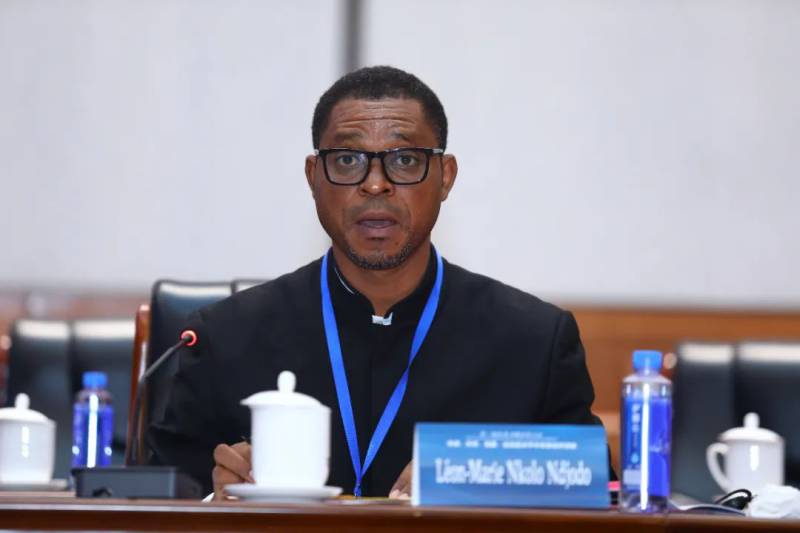
Léon-Marie Nkolo Ndjodo is delivering speech
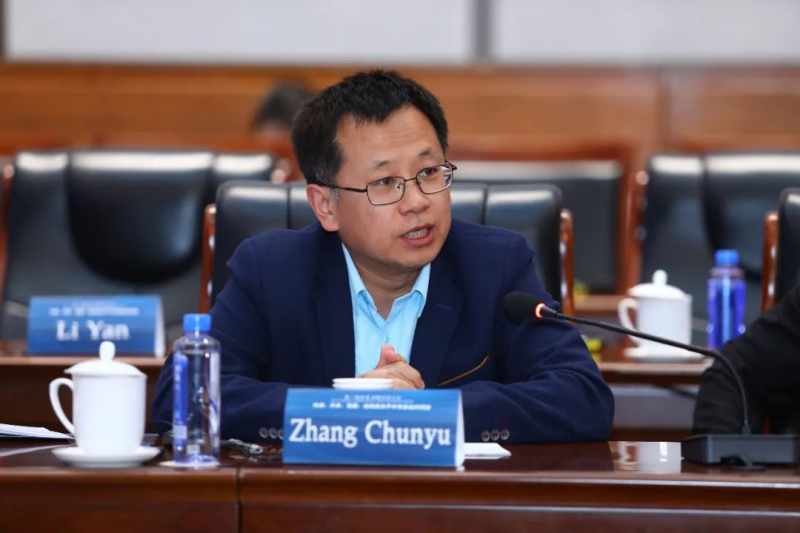
Zhang Chunyu is delivering speech
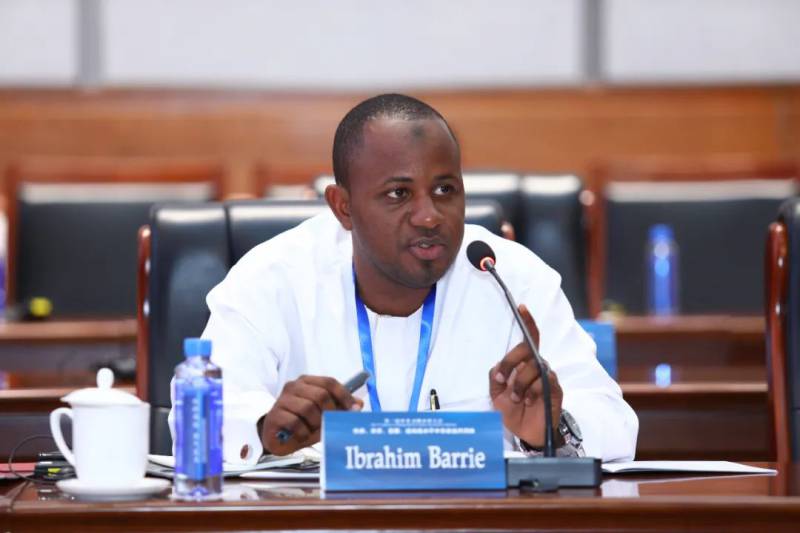
Ibrahim Barrie is delivering speech
Léon-Marie Nkolo Ndjodo, Associate Professor of University of Maroua in Cameroon noted that China advocates peaceful development, opposes to confrontation and interference, it upholds the principle of mutual benefit and rejects to form a small circle to keep others out. This is in contrast with the practice of Western countries.
Zhang Chunyu, associate researcher of the CAI believes that China and Africa should enhance cooperation to explore the relationship between government and market, because there is logical and mechanism linkage between an effective market and a well-functioning government. China and Africa should dig into this field in the future.
Ibrahim Barrie, Director for Open, Distance and E-learning, University of Makeni and also Member of Parliament for Bombali District in Sierra Leone said, Infrastructure plays a vital role in economic development and friendly cooperation between China and Africa. The BRI has brought African countries many opportunities for sustainable development. Africa will find a new path to inclusive growth and sustainable development, and China-Africa cooperation under the BRI will promote common prosperity.

Héribert-Label élisée Adjovi is making comments
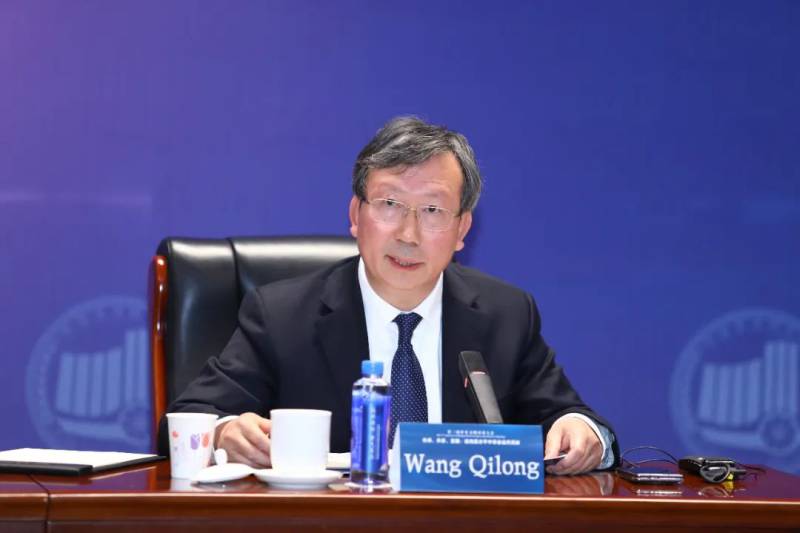
Wang Qilong is making comments
Héribert-Label élisée Adjovi, Governor of Pan-African Magazine “Le Label Diplomatique” said, China is an important force in Africa's development. Africa's infrastructure aided by China has largely boosted the local economic. China's investment in Africa and China-Africa trade are seen a steady growth, and huge success of China-Africa cooperation were made in areas such digital economy, information technology, healthcare and agriculture.
Wang Qilong, Changjiang Scholar of the Ministry of Education in China and Vice President and Professor of Xi’an International Studies University, made comments. He said, the speeches at today’s conference filled with valuable insights, brought wisdom for China-Africa joint development, and offered inspirations for mutually beneficial cooperation between China and Africa.
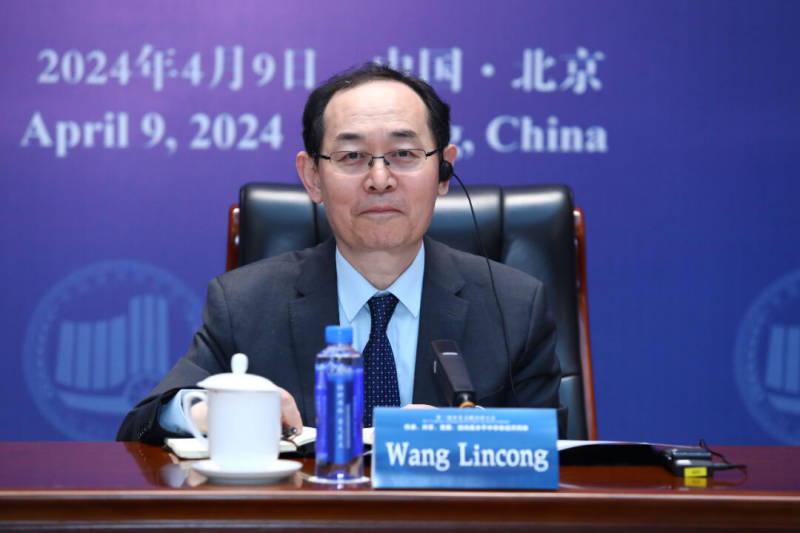
Wang Lincong is making closing speech
Wang Qilong presided over the closing ceremony. Kizito Nnanda, Senior Research Fellow of Development Watch Centre in Uganda, and Wang Lincong, Vice President and Research Fellow of CAI made closing remarks.
Kizito Nnanda extended his congratulations on the success of the conference and the CAI’s great achievements over the past five years. He said that China and Africa, both developing nations, are searching for the path to modernization, and the two sides should continue to push forward common development through mutual learning among civilizations.
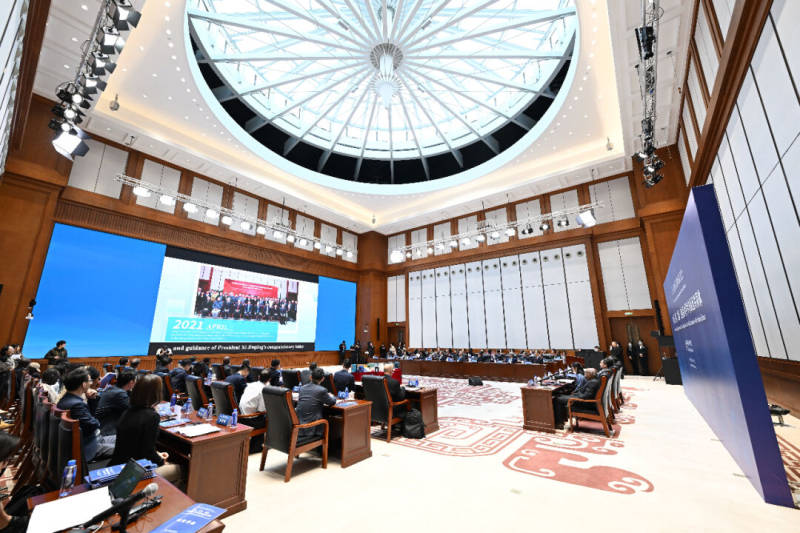
Participants at the conference
In his closing speech, Wang Lincong said, the speakers had an in-depth discussion and reached broad consensus at today’s conference, helping deepen their understanding and respect for each other's cultures. Chinese and African civilizations share commonalities and the feature of innovation, injecting force for China-Africa common development and modernization. Therefore, mutual learning between Chinese and African civilizations can be seen as a source of innovation as well as the foundation for development and peace. It will gain even stronger momentum in the future under the guidance of the GCI. The CAI will continue to work with African and Chinese experts and scholars to promote the mutual learning between Chinese and African civilizations.


